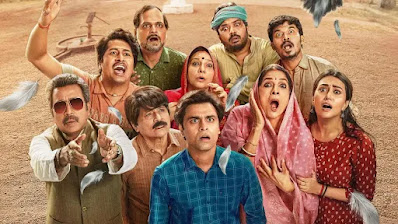Revisiting Classics - 8
Today we revisit the epic 1982 film Gandhi by Sir Richard Attenborough. The film till today stands as the most definitive work on the man and his works. It took several years in the making; initially as the brain child of Pandit Nehru and upon his demise the project was stalled for some time. However, with the support of the IB Ministry, Mrs. Gandhi and with Colombia Pictures the film was back on track and finally released in 1982. It took the vision of Sir Attenborough (what a paradox) on envisioning the life of the Mahatma. With such an illustrious and important character from Indian history and much of whose work shaped the path of the freedom movement, later even influencing global leaders it was indeed a herculean task to be putting together all of his life into a feature film which is just about 3 hours long. A lot of back stories on making of the film floats around with several characters talking of their experience in making of the film. In all the stories though the common thread remains of the discipline and a schedule being followed in making of the film. And why not. With such an epic proportion of a vision being planned it needs a lot of discipline to see it all come true.
Gandhi the film to me stands out even today as the most important film and the times that we live in today, the relevance of the film and the message that it tries to convey becomes all the more relevant. To me personally, the film stands out for the brilliance of Ben Kinsley's portrayal of Gandhi. It is spot on and there are perhaps no loose end. The amount of discipline and range that Kingsley displays from the young Gandhi in South Africa to his final moments before he was shot, is a performance resplendent which any film school aficionado will look to many many times. His best moments in the film were with NYT reporter Vince Walker (Martin Sheen) both in South Africa and later in India, with the talented Margaret Bourke White (Candice Bergen) during his early freedom struggle and in the later years too, with the clergyman Charlie Andrews (Ian Charleson) and the poignant moments with Ba (Rohini Hattangady). These moments envisions Gandhi and the Mahatma both. In an unguarded moment during the early part because of a difference of opinion with Ba, he tries to literally push her out of the house. And that is where his moment of suffrage and vulnerability shows. Ba even says that; do not forget that you are a human being. Later talking to the foreign journalists he clearly lays down the roadmap for struggle which he knows will not be easy.
The other part of Gandhi which makes the film so riveting to watch is through the eyes of the big names from British cinema. John Gielgud, Trevor Howard, Ian Bannen, Richard Vernon, Michael Hordern, Athol Fugard (he is South African though), Geraldine James to name a few. Each of these characters in their brief moments bring in so much to their characters is riveting to watch. Trevor Howard as the Judge is in a small role but what gravitas he brings into the role is beyond description. The casting is spot on for each of the characters that Sir Attenborough planned for the film. Nehru, Jinnah, Maulana, Patel each one of them played their part to the tee.
The third aspect that makes Gandhi the movie a must watch and even repeat watch is about the context that the film captures. There are several moments in the narration which are important and captured brilliantly. Yet, there has been a lot of debate on several important people like Subash Bose missing from the context. That may be true but to me the critical events that shaped the freedom struggle and how Gandhi played a role is so important. In the early period of the film when he lands into India and his meeting with Gopal Krishna Gokhale who urges him to see the real India, perhaps shapes the vision of Gandhi. The Champaran incident, Satyagrah, Salt March, Quit India Movement all important events that shapes the struggle of Gandhi. And that is where the film has been able to capture the sentiment, ethos and the journey of a man.
Some of the poignant moments in such an epic film on a large canvas are indeed treat. The opening sequence where the camera simply lets you savour the stillness of the river and the music of Pandit Ravi Shanker sets the tone. In a later part of the movie where Gandhi is sitting by the river and watches a destitute lady on the other side of the bank is a moment that is worth watchin many many times. The helplessness in both their faces in different ways makes you think on the path that Gandhi took.
Gandhi has to be watched many many times for now. As the man said, be the change you want to see and perhaps his life is his message. And there is no better time than now to understand him and his message. In a toxic India (and perhaps the world too) of today, the film may perhaps be a balm to soothe the pains inflicted.
It streams on Amazon Prime. Go watch.




Comments